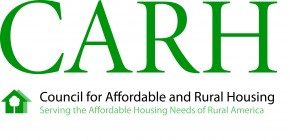- November 2022
- October 2022
- September 2022
- August 2022
- July 2022
- June 2022
- May 2022
- April 2022
- March 2022
- February 2022
- January 2022
- December 2021
- November 2021
- October 2021
- September 2021
- August 2021
- July 2021
- June 2021
- May 2021
- April 2021
- March 2021
- February 2021
- January 2021
- December 2020
- November 2020
- October 2020
- September 2020
- August 2020
- July 2020
- June 2020
- May 2020
- April 2020
- March 2020
- February 2020
- January 2020
- December 2019
- November 2019
- October 2019
- September 2019
- August 2019
- July 2019
- June 2019
- May 2019
- April 2019
- March 2019
- February 2019
- January 2019
- December 2018
- November 2018
- October 2018
- September 2018
- August 2018
- July 2018
- June 2018
- May 2018
- April 2018
- March 2018
- February 2018
- January 2018
- December 2017
- November 2017
- October 2017
- September 2017
- August 2017
- July 2017
- June 2017
- May 2017
- April 2017
- March 2017
- February 2017
- January 2017
- December 2016
- November 2016
- October 2016
- September 2016
- August 2016
- July 2016
- June 2016
- May 2016
- April 2016
- March 2016
- February 2016
- January 2016
- December 2015
- November 2015
- October 2015
- September 2015
- August 2015
- July 2015
- June 2015
- May 2015
- April 2015
- March 2015
- February 2015
- January 2015
- December 2014
- November 2014
- October 2014
- September 2014
- August 2014
- July 2014
- June 2014
- May 2014
- April 2014
- March 2014
- February 2014
- January 2014
Rental Assistance Funding in Jeopardy—Contact Needed with Your Senators
CARH’S BROADCAST EMAIL—Legislative Alert
As CARH members will recall, the American Rescue Plan Act (ARPA) P.L. 117-2 included an additional $100 million that was appropriated for the United States Department of Agriculture’s (USDA) Rural Development (RD) Section 521 Rental Assistance (RA) program. This additional RA was intended to help non-RA residents, who the agency had designated as rent overburdened, pay rent during very challenging times for the country. When Congress was reviewing programs that should receive funding, RD told officials that approximately 75,000 households living in rural housing do not receive any form of rental subsidy. The $100 million that was allocated was able to help 27,000 households in 3,700 properties. The Administration’s budget request for RA in Fiscal Year (FY) 2023, which begins on October 1, 2022, is $1.602 billion which would fund all RA contracts, including those that first received monies through ARPA, as well as those that were originally contracted when a property was placed in service.
The House Appropriations Committee in H.R. 8239, the Agriculture, Rural Development, Food and Drug Administration and Related Agencies Appropriations bill for FY 2023 has only recommended $1.494 which would, if enacted, not provide sufficient monies to fund the additional contracts funded by ARPA. Thus, the units identified by owners who had residents living in them who were rent overburdened would no longer be eligible for RA.
The House Appropriations Committee reported the bill to the full House on June 27, 2022. Congress has just returned from its July 4th recess. The full House of Representatives will likely consider H.R. 8239 next week. The Senate Appropriations Agriculture Subcommittee and full Committee will likely consider its version of the FY 2023 funding bill in the next two weeks. It is urgent that CARH members reach out to their Senators and tell them of the devastating impact of reducing RA funding, especially as inflation continues to rise and housing and daily living costs for individuals who have been helped by the Section 521 program also rise. As CARH members know, the Department of Housing and Urban Development’s (HUD) rental assistance programs during the last two years received an enormous amount of funding. Those programs are not being subject to the same reduction as USDA’s Section 521 program is being asked to bear such cuts.
Yesterday, CARH, together with nine other national housing-related groups across the spectrum, sent this letter to the Chair and Ranking Member of the Senate Appropriations Agriculture Subcommittee. Members of the Subcommittee, as well as other Senators who have an interest in housing-related issues were also copied on the letter.
We would ask CARH members to send a letter of your own via email to your Senators asking them to contact Senators Baldwin and Hoeven and oppose the House action and fully fund the RA account at the requested $1.602 billion. If you have a Senator who sits on the Agriculture Appropriations Subcommittee or the full Senate Appropriations Committee, it is even more urgent that you contact them. Please let CARH’s national office know the status of your contacts via email at cfisher@carh.org or carh@carh.org.
For information on how to contact yours Senators, click here.
For a list of Senate Appropriations Committee members, click here.
For a list of members of the Senate Agriculture Appropriations Subcommittee, click here.





